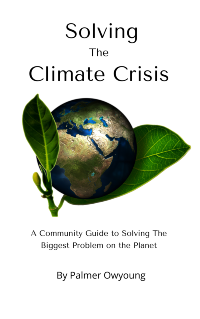How to Avoid Becoming a Grumpy Old Man or Woman (GOM/W)
I am 54 years old and while there are still plenty of things I would like to accomplish, I feel like I have lived a pretty good life. Even though I was never at the top of my class; not a star athlete; I still haven’t become a millionaire and while I’ve written a couple of books, neither was a bestseller, I am happy on a day-to-day basis.
My brother died last year of a heart attack at 55, and while he had the outward trappings of success, a couple of nice cars, a few million in the bank, a long-term stable relationship, and his own home, he drank heavily and ate rich foods which is likely what killed him. And in the end, I don’t think these things brought him the happiness that he sought.
I’ve spent the past 12 years living on the island of Phuket, Thailand. It’s beautiful, and it used to be relatively inexpensive to live here, although that has changed in recent years. Nevertheless, many people from around the world come here to retire.
When I first arrived, I expected the people that I met, many who were in their 60s and 70s to be filled with wisdom from their decades on the planet. Instead, what I found were grumpy old men and some women, filled with petulance and pettiness who spent most of their time gossiping about one another, complaining about everything, and never had a kind word about anything.
When I was in my teens or twenties, I remember feeling moments of happiness, but they were often punctuated by fits of anger and sometimes despair. But over the course of my life, I developed practices and disciplines that contributed to my overall sense of happiness, health, and well-being.
I only wish I could go back and teach my younger self how to find the peace and happiness that it has taken me a lifetime to achieve. But since that is not possible, I will share them here, hoping you can adopt some of these ideas into your life, whether you are in your teens, twenties, thirties, or beyond.
Choose Your Friends Carefully
Friendship is a fundamental aspect of life and science shows that deep connections and casual contacts, like the barista at your coffee shop or the server at your favorite restaurant, are important for long-term happiness.
Studies also show that having a network of friends can be more important for health and longevity than diet or exercise. An 85-year-old study from Harvard on happiness and health says that loneliness kills and having healthy relationships and being part of a community is one of the biggest determinants for aging gracefully.
Motivational speaker and self-help guru Jim Rohn once famously said, “You are an average of the 5 people you spend the most time with.” The company we keep can significantly influence our beliefs, our health, our behaviors, our thoughts, our words, our ethics, our financial status, and our outcomes in life. It can also influence how you feel about yourself.
Our friendships shape who we are and who we will become. As the old saying goes, “Show me your friends, and I’ll show you your future.” Studies also show that strained relationships can also be an indicator of chronic illness and greater mortality risk.
So, while you should have friends, you should also be picky about who you choose to be friends with, both in your deep relationships and your casual contacts. If you are an introvert like me, you will probably not have an extensive network of friends, but just three or four, and this is fine as well.
There are a few rules I use to determine who is worth spending time with. I stay away from drama queens, people who are overly sarcastic, overly critical of others, or complain a lot. These characteristics can really sour a friendship.
Whatever the case, I use the six-month rule when choosing friends. If someone doesn’t fit well into my social circle for whatever reason, I don’t spend more than six months in that relationship. This keeps me from investing too much time into someone who I don’t really enjoy being around.
If you really don’t enjoy the company of people, then dogs, cats, and other animals also have proven health and happiness benefits.
Be Mindful of Your Diet
Your diet is not only what you eat. It is what you watch, what you listen to, what you read, and the people you hang around. You should be mindful of these things because they will affect how you think and behave and will also change you physically, emotionally, and spiritually.
Begin with the food that you eat. As renowned author Michael Pollan likes to say, “Eat Food, (by this he means whole unprocessed foods) Not Too Much, Mostly Plants.” According to science, one of the healthiest diets is the Mediterranean Diet, which advises eating a diet rich in a variety of vegetables, using olive oil instead of butter, and eating very little meat. When you do the diet recommends eating mostly chicken or fish.
Science says that this leads to lower levels of cancer, heart disease, and diabetes, and this is reaffirmed by the Blue Zones, which are five areas in the world with the greatest concentrations of people who live to over 100. These areas all eat a similar diet.
That’s not to say that I never eat sweets or junk food. I just don’t overindulge. I love cookies, muffins, cheesecake, and ice cream. But if I eat them I make them myself. This not only limits how often I can have them, but it also allows me to reduce the amount of sugar I consume. One of my weaknesses is potato chips, which I don’t make, but I limit them by only allowing myself to buy a bag once per month. Not having them in the house makes it much easier to exercise discipline.
Being healthy and being happy are two things that go hand in hand. It’s hard to have one without the other.
As for your media diet I try to live grounded in an evidenced-based reality, so I spend a lot of time reading non-fiction, and science, usually things that empower me in life, like information about diet, exercise, longevity, health and happiness. Try to stay away from any type of social media that makes you feel bad about yourself or forces you to compare yourself to others.
Get Physical
One maxim that I’ve lived my life by is “Good Health Leads to Happiness.” In general, it’s true that what makes us healthy also makes us happy. While everybody is looking for the latest fad diet, pill, or miracle food for good health, one thing that has a long proven scientific track record behind it is exercise. That doesn’t mean you have to slog long hours at the gym.
To make it convenient, I’ve set up a home gym with just a pull-up bar, a couple of dumbbells, a punching bag, and a yoga mat. This means I have fewer excuses not to work out, and it saves me hundreds of dollars per year in gym fees. So, every other day I do weight-bearing exercises, which include push-ups, pull-ups, dumbbell curls, and squats. The other days I do cardio and I ride my bike, swim, hit the punching bag, or do sprints.
Not only does this keep my body healthy, but it also keeps my mind healthy, it relieves stress, and puts me in a better mood.
Meditation and Anger
One habit that I most wish I had practiced when I was younger is meditation. I once wrote it off as another new-age distraction like crystals and incense. It was not until my 30s after reading a Time Magazine article that said there was scientific evidence that meditation changes the neural pathways in our brains that I took it seriously. Besides helping you to control your emotions, it can also help promote better sleep patterns, boost cognitive skills, reduce stress, depression, and anxiety, and improve physical health.
When I was in my teens and twenties, I had a lot of anger. I embarrassed myself on more than one occasion with outbursts and I said things that I later regretted. I grew up in an angry household with lots of physical and verbal abuse and it was often the default emotion when I didn’t know what I was feeling.
Although I tried learning to not be angry by reading books and going to therapy, nothing worked until I found meditation. The simple act of sitting in silence twice a day for 10-15 minutes a day doing nothing but contemplating my breath changed my life and unwired a lifetime of anger that I know would have destroyed my life.
Meditation can be done anywhere, anytime. It’s free, requires no special equipment or training and it can save you a lifetime of regret. It is one of the best practices to incorporate into your daily routine and I cannot recommend it highly enough. I credit it with changing my life for the better. It’s not that I never get angry, it’s just that my responses are more measured and less reactive than they were before.
You can even use meditation when you are driving and someone cuts you off, or if someone is being antagonizing and argumentative at a party, or if someone is just being annoying at your local café.
Live with Purpose
One of the most important things for living a good life is finding your purpose as soon as you can. Begin by thinking about what you are good at and combine it with what you enjoy doing. Then you should consider whether you are an extrovert or an introvert, meaning whether you enjoy working with others or prefer working alone. This last point is important because it determines how you learn and what type of environment you thrive in. For example, extroverts get energized from being around other people, while it drains introverts.
Finally, when you combine these ideas, figure out whether or not you can make money at it. This will determine whether you will pursue this activity as a hobby or a career. Sometimes it is our hobbies that give our life meaning but don’t pay the rent and bills.
Knowing the answers to these three questions will help you determine your purpose in life. For many people, their main purpose is to make enough money to retire some place tropical. But as someone who has spent the past 12 years of his life living amongst retirees in Thailand, I’ve witnessed firsthand that this seldom brings happiness. Most of the retired people I know spend their time drinking, doing drugs, and arguing about nonsense.
It’s also important to continue to live with purpose past your working years. I’ve known far too many people who were forced to retire from their jobs and had a difficult time finding purpose and meaning for their lives. So, continue to volunteer in your community or develop the skills of an entrepreneur and start your own business. This way, you can never be fired.
Live in Moderation
Living in moderation rather than living in excess is an important key to long-term happiness. It brings us balance and perspective and when we sometimes deprive ourselves; it makes us appreciate things more. We often mistake pleasure for happiness, so we choose hedonism as a lifestyle and end up eating too much; having too much sex; buying too many things, taking too many drugs; partying too much, and drinking too much. Instead of happiness, we find ourselves hung over, bloated, addicted, with a cluttered house and more than likely an STD.
But pleasure is passing and external. Happiness is more persistent and innate. That’s not to say that happiness doesn’t come and go. British Author, Lady Colin Campbell, said “Nobody can be happy all the time, and if you aim to be, ultimately you will never be happy.”
Many of the things that we think are going to make us happy, like having more money, material possessions, job promotions, accomplishments, and the admiration of others, don’t create long-term lasting happiness.
Living in moderation means finding balance in life and avoiding excess. It means enjoying life’s pleasures without overindulging and taking care of yourself and others. It means being mindful of your actions and their consequences.
One way to live in moderation is by fasting. So, if you have become overly indulgent in food, do a 24-hour fast. If you find yourself drinking too much, abstain for a week or even a month. If you are consuming too much, social media block those websites. If you are buying too much junk, then lock your credit card away in a drawer for a month.
Whatever you are overindulging in, take a break and when you come back, you will appreciate it more.
Be Thankful
I spent a lot of time in my 30s and 40s needlessly unhappy because I was always coveting things I didn’t have. A better job, more money, greater success, rather than giving thanks for the things I did have. A healthy body, a beautiful wife, an inquisitive mind, and amazing dogs.
In our competitive world, it is difficult not to compare yourself to others and to want what they have. But don’t keep that from also appreciating the things that you already have. There’s that Helen Keller quote that says, “I cried because I had no shoes until I met a man who had no feet.”
A good habit to get into is to make a list of all the things that you are thankful for in your life. It could be your children, your job, your health, whatever you are thankful for, and review it once a week. You can also come up with three things daily that you are thankful for. This could be a pleasant conversation, a good meal, or the completion of a project. It doesn’t matter how mundane it is, write it down in and give thanks for it.
This act of gratitude has been scientifically proven to make us happier. It can also improve your mood and long-term mental health.
Give Fewer Fucks
Be nice to people as much as you can, but realize that people will still find reasons not to like you no matter how nice you are, or even because you are so nice. Sometimes it’s just not your fault and learn to give fewer fucks about it.
Don’t misinterpret what I am saying. There is that quote, “Everyone is Fighting a Battle that You Know Nothing About, so Be Nice.” I try to live my life by this. However, that’s not the same as saying eat shit when someone else is having a bad day.
If someone isn’t nice to me enough times, I cut them out without hesitation. There’s another rule I like to live by and that is, “Life is Too Short to Spend Time with Assholes.”


